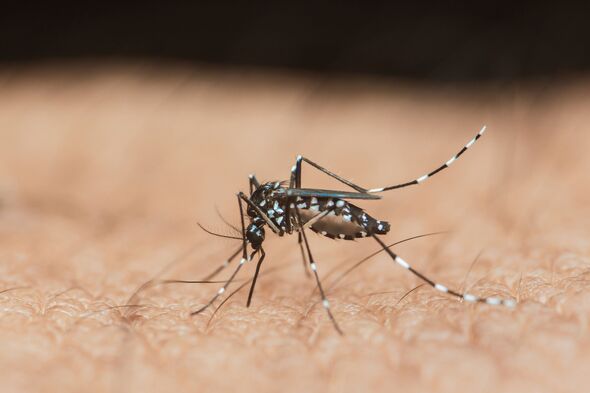

Mosquitoes carrying West Nile virus in two Spanish neighbourhoods have been detected in the municipality of Almeria. This pathogen causes an asymptomatic infection in most cases, but can also cause severe disease. In 2024, 20 deaths were recorded as a result of infection.
The AndalusianHealth Department has declared the first alert areas of this summer due to the detection of mosquitoes carrying the West Nile Virus in the neighbourhoods of Retamar-El Toyo, with 11,000 inhabitants, and El Alquián, with 6,000 inhabitants, in Almería. They have also raised the risk level from low to high throughout the municipality. Declaring an area on alert means and intensification of surveillance on insects, birds, equids (horses and donkeys) and humans, activating campaigns in schools and local residences and reinforcing communication actions to the public through community pharmacies and nursing services to adopt necessary protection measures against the virus.

In addition to all of this, the Almería City Council must also intensify control and treatment measures for mosquitoes transmitting the disease during the alert period.
West Nile Fever is an animal-origin infection caused by certain strains of the West Nile Virus, transmitted by mosquitoes, mainly of the genus Culex. This virus is maintained through a mosquito-bird-mosquito transmission cycle, with birds able to harbour the pathogen and transmit it. In contrast, humans and horses are considered final hosts, meaning they do not transmit the disease but can suffer from it. There is currently no licensed vaccine available for human use against West Nile Virus.
Once infection occurs, the incubation period is two to 14 days. The disease caused by the virus is seasonal and coincides with mosquito activity, approximately from late spring to late autumn. Although 80% of people infected with the West Nile Virus will not show any symptoms, 20% may develop mild symptoms resembling a flu-like illness, including fever, fatigue, muscle pain, general discomfort, headache, nausea, and vomiting. These symptoms can last a few days or sometimes weeks, but rarely require hospitalisation.

The main danger of this virus lies in that approximately 1% of cases present severe conditions such as meningitis, encephalitis, acute flaccid paralysis or Guillain-Barré syndrome. About 25% of these individuals with severe symptoms due to infection experience complications that can lead to death.
People most at risk of developing complications or having a poor outcome from this infection are those over 60 years old and those with chronic illnesses, especially immunocompromised patients.
Among the preventative measures to prevent insect bites that transmit the West Nile Virus in regions of Spain where cases are recorded are using domestic insecticides or environmental repellents, avoiding strong odours (such as perfumes and scented soaps) as they attract mosquitos, staying away from areas with untreated stagnant water such as pools, ponds and tree holes as his is where mosquitos breed and using registered mosquito repellents containing DEET (N,N-diethyl-m-toluamide), Icaridin, Citriodiol or PMD, IR 3535 (Ethyl butylacetylaminopropionate).
-
Mahila Samman Yojana 2025: Delhi Women to Receive ₹2500 Monthly – Keep These 2 Documents Ready!

-
8th Pay Commission Update: Proposal to Reduce Commuted Pension Restoration Period Gains Momentum — Relief Likely for Retired Employees

-
Teachers Recruitment: 44,750 teachers will be reinstated in Jharkhand soon, Education Minister gives good news..

-
BSEB Bihar Board 11th Admission 2025: Bihar Board has extended the last date for admission in the 11th, now you can take admission till 3rd July..

-
PM-Kisan 20th Installment Delayed: ₹2000 Still Not Credited, Farmers Worried — Here's When You Might Receive It
